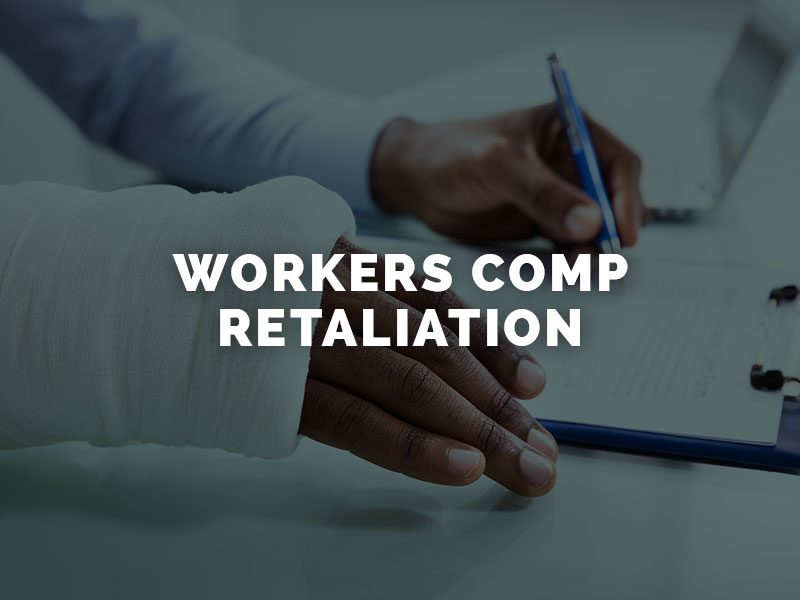Filing for workers’ compensation after a work-related accident is your right as a worker in Colorado. The state workers’ compensation system offers no-fault benefits after almost any type of accident or injury that occurs on the job. You have the right to file for insurance benefits without fear of losing your job or facing another type of retaliation. If your boss retaliates against you for filing a claim under its workers’ compensation insurance policy, you could have grounds for an additional case against your employer. Retaliation is unlawful in the state of Colorado and could qualify you for greater compensation.

It is illegal to fire an employee for filing a workers’ compensation claim in Colorado. It is also illegal to terminate someone’s employment for reporting a workplace safety or health hazard. Firing an employee under these circumstances would constitute wrongful termination, a bad faith employment practice that could make the employee eligible for damage recovery through the civil justice system. A wrongful termination lawsuit in Colorado could result in many different types of compensation.
The Americans with Disabilities Act makes it against the law for an employer to discriminate against someone with a disability. If a physical or mental impairment you suffered at work limits you, an employer must offer reasonable accommodations so you can continue to do your job. If you suffer an injury on the job, an employer cannot terminate your employment unless you can no longer complete the essential job functions. You could still receive workers’ compensation benefits even if your employer lawfully fires you.
Yes, an injured worker has the right to quit his or her job after suffering a work-related injury. If you are receiving workers’ compensation as an injured employee, this will not lock you into a job. You still have the power to quit if you believe a different occupation is better for you. In Colorado, the Division of Workers’ Compensation bases benefits on your employment status when you suffered the injury, not when you started receiving benefits. Your old employer may still owe workers’ compensation, therefore, even after you quit.
Think twice before quitting your job after suffering a work-related injury. You could be eligible for greater compensation if you keep your job in Colorado. An insurance company will divide your compensation award into medical benefits and indemnity. Indemnity refers to compensation for your amount of missed work. If you keep your job, your employer will continue owing you two-thirds of your missed wages until you recover and can return to work. If you quit and take another job, however, your weekly checks may decrease in relation to the pay you are making with your new job. The workers’ compensation insurer will reduce your award amount based on how much you make.
If you lose your job because of suspected retaliation after suffering an injury or filing a workers’ compensation claim, speak to a workers’ compensation attorney about Colorado’s retaliation laws. The federal and state government have laws restricting an employer’s ability to terminate an employee after an injury. Retaliation for filing an insurance claim is against the law. Filing a civil claim against your employer could result in payment for your damages. It could also result in job reinstatement if you wish to go back.
You may also have a case on the grounds of disability discrimination if you face job termination after suffering a disabling injury. Your employer cannot fire you if you are still able to perform the essential tasks of your job, even if you require reasonable accommodations. Federal law requires your employer to accommodate your temporary or permanent disability to a reasonable degree. You may be able to recover damages for workers’ compensation retaliation. Speak to an attorney for more information about your unique case.